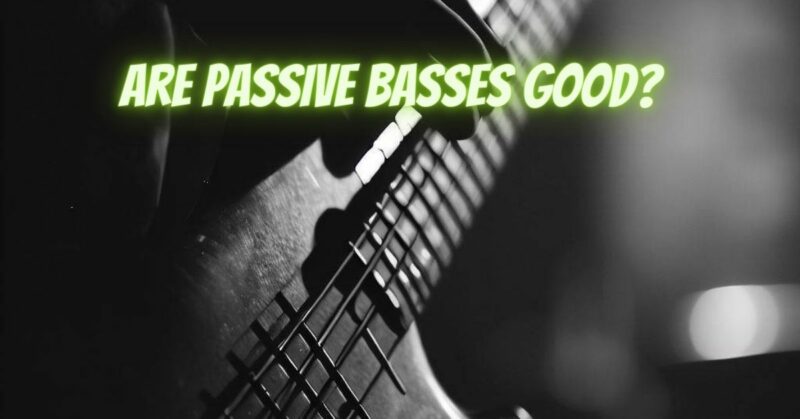Passive bass guitars hold a special place in the world of music, embodying the essence of traditional and organic sound. While active electronics have become increasingly popular, passive basses continue to captivate players with their timeless charm and unique sonic qualities. In this article, we’ll explore the merits and advantages of passive bass guitars, shedding light on why they remain a compelling choice for bassists across genres.
1. Natural and Organic Sound
One of the most appealing aspects of passive bass guitars is their ability to capture the true essence of the instrument’s sound. Without the coloration or boosting of active electronics, passive basses offer a pure and natural tonal character. This characteristic is particularly valued by musicians who seek to maintain the authentic voice of their bass guitar without additional signal processing.
2. Dynamic Sensitivity
Passive bass guitars are known for their dynamic sensitivity, responding directly to the player’s touch and technique. This responsiveness allows for a more expressive and nuanced playing experience, as the instrument translates subtle variations in finger pressure, picking intensity, and playing dynamics into a rich and textured sonic output.
3. Sonic Versatility
While passive basses might be associated with classic tones, they are far from limited in sonic versatility. By adjusting your playing technique, finger placement, and attack, you can coax a wide range of tones from a passive bass. This adaptability makes them suitable for a variety of musical genres, from blues and jazz to rock and beyond.
4. Simplicity and Reliability
Passive bass guitars are characterized by their straightforward and reliable design. With fewer components and electronics, the potential for technical issues is reduced, contributing to a more stable and durable instrument. Bassists who prioritize simplicity and ease of maintenance often find passive basses to be a reliable choice for both live performances and studio recordings.
5. Vintage Aesthetics
For players who appreciate the aesthetics of vintage instruments, passive basses often carry a visual appeal that complements their classic sound. The minimalistic design, traditional control layout, and retro finishes evoke a sense of nostalgia and authenticity that resonates with musicians who celebrate the heritage of bass playing.
6. Seamlessness with Effects and Amplifiers
Passive basses can offer a seamless integration with effects pedals and amplifiers, as their natural and unprocessed sound readily interacts with external gear. This integration allows for a more direct and transparent signal path, ensuring that the true character of your bass shines through.
Passive bass guitars stand as a testament to the enduring allure of traditional tone and musical authenticity. Their natural sound, dynamic responsiveness, and vintage aesthetics continue to draw in players who value the connection between their fingers and the strings. Whether you’re a seasoned bassist seeking a timeless sound or an aspiring musician exploring the roots of bass playing, passive bass guitars offer a compelling platform for artistic expression and sonic exploration.


